
Jared Aurentz
After completing his PhD with David Watkins at Washington State University, Jared Aurentz spent 2014-16 at Oxford. His contributions to Chebfun include thestandardChop algorithm for chopping a Chebyshev series,
the adjoint command for computing the adjoint of a chebop, and investigation
of continuous analogues of Krylov iterations.

Anthony Austin
Anthony Austin started as a DPhil student at Oxford in 2012. A wizard at the fine points of Git, Matlab, and many other things, he soon became the leader of much of the technical side of the Chebfun operation. He also played a key role in designing Chebfun's preferences structures.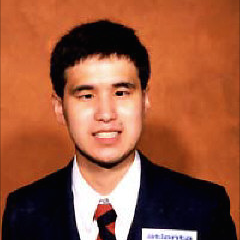
Zachary Battles
Zachary Battles was a Rhodes Scholar and DPhil student from 2002 to 2005, and he wrote Chebfun version 1. It has hard to believe it was just a few hundred lines of code! Zachary introduced the recursive rootfinding algorithm inroots as well as commands such as
qr, svd, \, rank and
cond for quasimatrices.

Ásgeir Birkisson
Ásgeir Birkisson was an MSc student, DPhil student, and then postdoc at Oxford from 2008 to 2015 and is responsible for a large part of of Chebfun's ODE capabilities. His contributions included automatic differentiation for nonlinear boundary-value problems (with Toby Driscoll), automatic detection of linearity of chebops, extension of the backslash syntax to IVPs as well as BVPs, and the graphical user interface Chebgui. Ásgeir is coauthor with Trefethen and Driscoll of the book in preparation Exploring ODEs.
Toby Driscoll
Toby Driscoll, a professor at the University of Delaware, created the ODE and integral equations side of Chebfun starting in 2008 and was one of the leaders of the Chebfun project from then until 2015. Among other codes he is responsible forsolvebvp, eigs,
expm, volt, and fred. Together with
Nick Hale, he developed the rectangular and block spectral discretizations
used in all of Chebfun's BVP computations, and is coauthor with Trefethen
and Birkisson of the book in preparation Exploring ODEs.
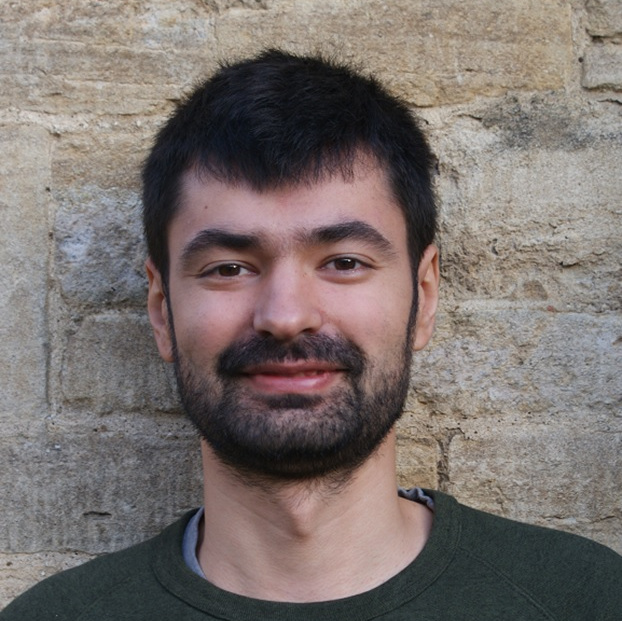
Silviu Filip
Silviu Filip joined us as a postdoc in 2016 after completing his PhD at ENS Lyon. At Oxford, he has been the prime mover behindminimax, which
we believe is by far the most robust Remez code for rational best approximation ever
created. He is currently in charge of the technical side of Chebfun.

Pedro Gonnet
Pedro Gonnet, a quadrature expert, was a postdoc at Oxford from 2009 to 2012 and introduced a number of speedups to Chebfun. He was a key contributor to the robust rational approximation algorithms ofratinterp and padeapprox.

Stefan Güttel
Stefan Güttel was a postdoc at Oxford during 2011-2012. Besides contributions to Chebfun's rational functions capabilities, Stefan introducedchebsnake.

Nick Hale
Nick Hale was a DPhil student at Oxford from 2006 to 2009 and then a postdoc until 2014. He has written more Chebfun code than anyone else as well as developing many algorithms related to solution of ODEs and PDEs (with Driscoll and Birkisson, includingpde15s) and fast
quadrature and orthogonal expansions (with Townsend, including
sum, legpts, cheb2leg, and
conv). He was director of the Chebfun project from 2010 to
2014 and managed the creation of Chebfun version 5.
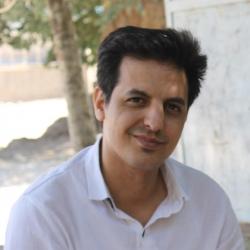
Behnam Hashemi
Behnam Hashemi, from Shiraz in Iran, joined the Chebfun team as a postdoc during 2014-2017. Behnam single-handedly created Chebfun3.
Hrothgar
Hrothgar, a DPhil student at Oxford during 2013-15, created the Chebfun web site introduced in 2014. He also played a key role in launching Chebfun's algorithms related to block operators, adjoints, and optimization.
Mohsin Javed
Mohsin Javed, an MSc and DPhil student at Oxford during 2011-2017, wrote thedirac code for working with delta functions.
He introduced trigremez and other contributions for
polynomial, rational, and trigonometric approximation. He also wrote
our Chebfun coding style guide and was in charge of tests and releases
and other technical matters during his final year.

Georges Klein
Georges Klein, an expert on barycentric and Floater-Hormann interpolation, was a postdoc at Oxford during 2012-2013. He introduced thechebfun(...,'equi') option for making chebfuns from
equispaced data.

Hadrien Montanelli
Hadrien Montanelli was a DPhil student at Oxford during 2013-2017. He contributed to algorithms for periodic functions and ODEs/PDEs, and created thespin,
spin2, spin3, and spinsphere codes
as well as cheb.choreo.
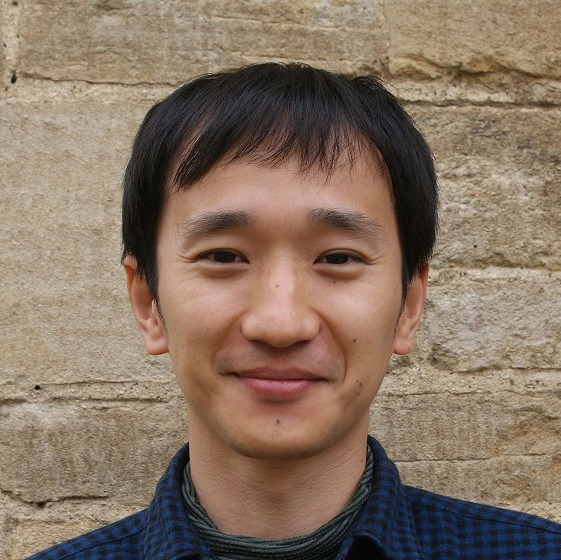
Yuji Nakatsukasa
When he was at the University of Manchester, Yuji Nakatsukasa worked with Vanni Noferini and Alex Townsend on the fast rootfinding algorithms for Chebfun2. Now he is a visiting researcher at Oxford, developing algorithms for rational approximation including bothaaa and minimax.
Yuji also helped create the fast linear algebra algorithms used by spinsphere.

Ricardo Pachón
Ricardo Pachón was Chebfun team member #3, arriving at Oxford as a DPhil student in 2006. With Rodrigo Platte, he advanced Chebfun from global polynomials to piecewise polynomials, and became an expert in approximation algorithms, includingremez,
chebpade, and lebesgue.
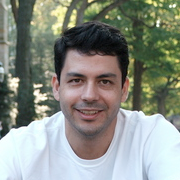
Rodrigo Platte
Rodrigo Platte, Chebfun team member #4, was a postdoc at Oxford from 2007 to 2009 and worked with Ricardo Pachon to produce Chebfun version 2. Rodrigo extended Chebfun to infinite intervals and invented the fast edge detection algorithm used by the Chebfun constructor insplitting on mode.

Mark Richardson
Mark Richardson was an MSc and then DPhil student at Oxford from 2008 to 2013. Mark introducedblowup on and other features to enable
Chebfun to treat poles and other singularities.

Alex Townsend
Alex Townsend, a DPhil student at Oxford during 2010-14, created Chebfun2, including its fast rootfinding and optimization methods. With Nick Hale and others, Alex developed the fast algorithms based on orthogonal polynomials of codes includinglegpts, sum, conv,
cheb2leg, and nufft.
Since leaving Oxford for MIT and then Cornell he has been an active Chebfun
team alumnus, and is one of the authors of Spherefun.
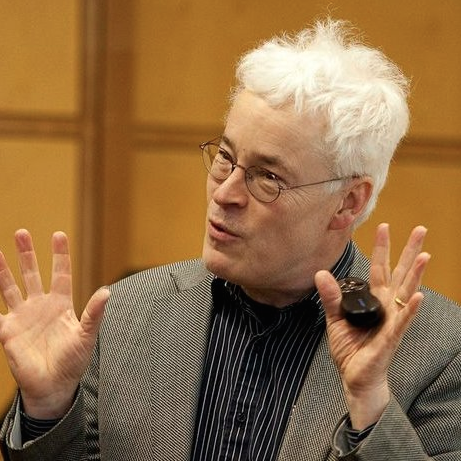
Nick Trefethen
Nick Trefethen invented Chebfun in 2002 and has been involved in the project ever since. Nick wrote much of the Chebfun Guide, many of the Examples, and the Chebfun-based book Approximation Theory and Approximation Practice, and he is coauthor with Birkisson and Driscoll of the book in preparation Exploring ODEs. He also createdscribble.

Heather Wilber
Heather Wilber worked with Grady Wright and Alex Townsend to create Spherefun when she was a Master's student at Boise State University during 2015-16. She then led the creation of Diskfun, which was the main topic of her Master's thesis. Heather is now a PhD student in applied mathematics at Cornell.
Grady Wright
During a six-month visit to Oxford in 2014, Grady Wright of Boise State University launched a whole new direction for Chebfun: periodic functions, or "trigfuns", based on trigonometric expansions. Periodic functions are now part of Chebfun, Chebfun2, and Chebfun3, and have also made possible the new Spherefun and Diskfun classes. The Spherefun project was initiated and led by Wright.
Kuan Xu
Kuan Xu was a postdoc at Oxford during 2012-15. He is an expert on rectangular spectral differentiation matrices, Chebyshev points of the first kind, and trigonometric barycentric interpolation formulas, and he wrote the Chebfun v5 code for handling unbounded intervals.-
Jean-Paul Berrut, a professor at the University of Fribourg, has been a tireless advocate of the power of barycentric formulas for polynomial interpolation. That was the idea that originally led to Chebfun.
-
Folkmar Bornemann, a professor at the Technical University of Munich, proposed the lazy evaluation idea that enabled Chebfun to represent linear operators and thereby solve ODEs.
-
Vanni Noferini, a postdoc at the University of Manchester, worked with Alex Townsend and Yuji Nakatsukasa on the fast rootfinding algorithms for Chebfun2.
-
Sheehan Olver, now at the University of Sydney, was a Junior Research Fellow at Oxford from 2007 to 2011. He and Alex Townsend created the ultraspherical spectral methods for ODEs introduced in Chebfun version 5.
-
Lourenço Peixoto, a student in Minas Gerais in Brazil, contributed
ultraptsand improvements tojacptsand other codes related to orthogonal polynomials. -
Olivier Sète was a post-doc at Oxford during 2015-2017. An expert rational functions and the complex plane, he created
aaatogether with Nakatsukasa and Trefethen. -
Richard Mikael Slevinsky, from Alberta in Canada, spent 2014-16 as a postdoctoral researcher at Oxford. He is an expert in quadrature, ultraspherical spectral methods, and singular integral equations, and was the Chebfun team's link to Julia and the ApproxFun project.
-
Joris Van Deun spent three months with the Chebfun team in 2010. He wrote the code
cffor Carathéodory-Féjer approximation. -
Marcus Webb spent six months with the Chebfun team at the end of his undergraduate studies at Oxford in 2012. He showed how Chebfun can be used for analytic continuation in the complex plane and improved
bary.

